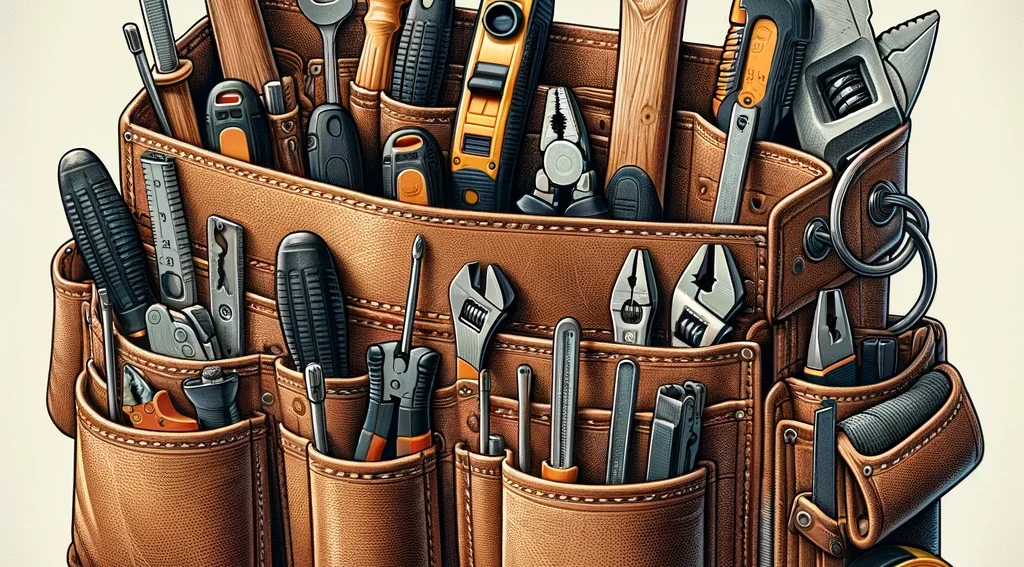With rising college costs and limited career prospects for many majors, there has been a sharp decline in the number of young people attending college over the past decade. Many of them are choosing trade schools instead, as explained by Mike Rowe in his NewsNation interview with Leland Vittert. Rowe will be discussing this issue in detail on the Chris Cuomo show on Wednesday April 10. This current trend is leading some to refer to young people as the toolbelt generation. With the current influx of people giving up college for the skilled trades like carpenters, electricians, plumbers and welders, it is time started studying skilled trades workers in the organizational sciences.
Organizational Research Focuses on a Narrow Range of Jobs
If you look carefully, you will see that there are few studies in the organizational research literature focusing specifically on blue-collar occupations. I did a keyword search of the main industrial-organizational psychology peer-reviewed outlet, the Journal of Applied Psychology. In its more than 100-year history publishing over 10,000 articles I got exactly 57 hits on “blue collar”, with only 3 published in the 21st century. Skilled trades yielded 7, electrician, 4, and both plumber and welder 1 each. Clearly the trades have been neglected.
There is a tendency in the organizational sciences to consider employees to be interchangeable. Little attention is paid to the nature of our samples in terms of industries or occupations. It is implicitly assumed that the principles we uncover for one group of workers holds for all workers. So little comparative work has been done, that it is hard to draw many conclusions. I know of one study that compared samples from different occupations, finding some large differences. Maybe this shouldn’t be surprising considering that meta-analyses (quantitative summaries of large numbers of studies) almost always find large variation in results across studies.
It Is About Time We Started Studying Skilled Trades Workers
Academic researchers who study employees have avoided skilled trades workers for a variety of reasons.
- It is hard to collect data on skilled trades workers. They often are self-employed or work for small businesses. This makes them difficult for researchers to access enough of them to conduct quantitative studies. One way around this problem is to partner with trade unions, conducting research on issues they care about, such as employee health and safety. Another would be to partner with trade schools, doing research on career issues of their graduates.
- There is no compelling reason to study them. It isn’t as if there have been strident calls for doing research on the trades. Academics who publish research follow current acceptable practices, including the sorts of samples people collect in their studies. In 2024 in the Journal of Applied Psychology that means online panels not blue collar workers.
- They are unfamiliar. One of the by-products of there being almost no research on the trades is that researchers have little base knowledge. Most live in the while collar world and are unfamiliar with the issues. Practitioners might find themselves working with these groups, for example, conducting job analyses of blue collar jobs. Academic researchers don’t have the access or the experience.
- There is a stigma. For the past few decades, society has pushed young people to go to college and avoid the trades. Blue collar work is assumed to be for those who aren’t smart enough for white collar jobs. Nothing could be farther from the truth. Skilled trades work can be as cognitively demanding as white collar jobs. On top of that it requires a host of additional KSAOs (Knowledge, Skill, Ability and Other characteristics), including hand-eye coordination, motor skills, strength, and visual perception. And the work can be dangerous.
It is past time that as a field we started taking occupation seriously in our studies. We need to better understand how findings derived from white collar work holds for blue collar work. There are unique aspects to each that we need to better understand. Instead of focusing on developing new theories and inventing new constructs, the field would be better off asking some basic questions about differences among occupations and how the type of work matters.
Image generated by DALL-E 4.
SUBSCRIBE TO PAUL’S BLOG: Enter your e-mail and click SUBSCRIBE

As a society we are better off that there is an increase interest in the trades. We are very short of plumbers, electricians, truck drivers, construction professionals, etc. There are people in college who don’t excel there who would be great in the trades. we have made trades seem less important than college degree-based careers. We need to do a better job of helping people find work that is meaningful, will provide a good standard of living, and that is a good fit with their interests and skills rather than having a one size fits all approach.